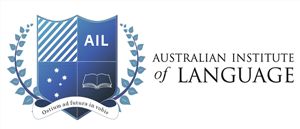
Each public hospital has a 24 Hour Emergency and Casualty department where you may seek help after hours and during weekends. Expect to wait a long time to see a doctor at a public hospital unless of course it is an emergency. You should check whether your OSHC provider covers out-patient treatment.
Doctors are referred to as a GP, General Practitioner or MP, Medical Practitioner.
Pharmaceutical Prescriptions
Pharmaceuticals prescribed by a doctor are not free nor are they available from doctors. They must be purchased at a Chemist. If the cost of the prescribed medication is over a certain amount you can get a refund of the amount through your OSHC provider. Pharmaceuticals prescribed under this are not claimable.
Overseas Student Health Cover – OSHC
The Department of Home Affairs (DHA) requires all international students and their families (on “dependent” visa) to have medical insurance while in Australia. Currently there are four insurance companies that provide OSHC, these are:
● Compare providers or,
● Medibank
● Allianz
● BUPA
Each company provides a basic health insurance which covers the cost of consultations with a General Practitioner, blood test, x-rays, hospital treatment, some pharmaceuticals, and emergency ambulance. Make sure you know what is covered by your provider and what is NOT covered. Read the policy carefully particularly with regards to pre-existing conditions.
● Compare providers or,
● Medibank
● Allianz
● BUPA
Each company provides a basic health insurance which covers the cost of consultations with a General Practitioner, blood test, x-rays, hospital treatment, some pharmaceuticals, and emergency ambulance. Make sure you know what is covered by your provider and what is NOT covered. Read the policy carefully particularly with regards to pre-existing conditions.
Membership
Your health cover membership begins the day you land in Australia or the day payment is received. New students who have paid their OSHC and are insured with “Medibank Private” will need to order their OSHC card. Your card will then be sent to your Australian address. If you have to see a doctor but have not received your card, make sure you keep the receipt to claim the doctor’s charge back at a later date. You are responsible for ensuring your OSHC remains valid throughout your stay in Australia. As long as you remain in Australia on a student visa you MUST be covered by OSHC.
Claiming a refund
To get a refund for doctors’ fees and prescription medication, submit a claim form and original receipts to your OSHC provider. You should get the full amount if you have been charged the scheduled fee.
Extra health insurance cover
You may wish to take additional insurance for services such as dental, optical, chiropractic, physiotherapy, clinical psychology all of which are not normally covered by the basic OSHC package. Check with individual insurance companies for extra cover and make sure you are aware of the conditions that apply for certain coverage.
Dental services
OSHC does not cover dental services. You will have to see a private dentist. You should be given a good estimate/cost of the work to be done after your first visit. If in doubt seek a second opinion. Some dentists are more expensive than others. Appointments are necessary to visit a dentist, and payment at time of service is always expected.
Family Planning
Family planning, contraceptives, and sexuality issues can be discussed with nurses, doctors, or counsellors. There are also several centres throughout Melbourne providing advice and specialist services to the community.
Counselling
Feeling homesick is normal and can affect anyone at any age. Being in a new country and new university is difficult and can be overwhelming for anyone regardless of cultural background, age, gender, and life experiences. In Australia it is common to seek help and speak to a counsellor about fears, stresses or distresses, grief, academic anxieties, relationship issues; any concern affecting your lifestyle. Counselling can help you achieve and maintain a balanced and healthy lifestyle.
“Lifeline Victoria – Personal and Family Counselling” unit provides personal and marital counselling for people of all ages who want to make changes in their lives. Lifeline (phone 13 11 14 open 24hrs) is a safe and supportive environment adhering to respect of an individual and maintaining the confidentiality of all its cases.
“Lifeline Victoria – Personal and Family Counselling” unit provides personal and marital counselling for people of all ages who want to make changes in their lives. Lifeline (phone 13 11 14 open 24hrs) is a safe and supportive environment adhering to respect of an individual and maintaining the confidentiality of all its cases.
Discrimination
It is unlawful to act in any such way that excludes or restricts on the basis of race, colour, descent or national or ethnic origin. It is also unlawful to discriminate on the basis of sex, marital status, pregnancy or potential pregnancy in everyday life such as education, accommodation and employment. The College is committed to providing a freedom from all forms of discrimination in education and employment. Claims for discrimination must be made within 12 months of the incident of discrimination. The process of resolving discrimination matters emphasizes conciliation. However, if the matter is still not resolved, it can proceed to a formal hearing.
Locations of Human Rights and Equal Opportunity Commission (Federal) Complaints Info line: 1300 656 419
Locations of Human Rights and Equal Opportunity Commission (Federal) Complaints Info line: 1300 656 419
Domestic Violence
Domestic Violence is the abuse of a person by a family member. Where the relationship between the persons involved is that of a spouse, de facto partner or they are both the parents of the same child, a Domestic Violence Protection Order may be available. This order is commonly made for 2 years and can restrict contact with the parties involved.
Essentially, there are 7 types of abuse that can occur:
● Verbal abuse (e.g., put downs, comments about incompetence)
● Financial abuse (e.g., refusal to give money for basic necessities)
● Social abuse (e.g., denying the right to earn money, prevention of socializing with other family members and friends)
● Sexual abuse (e.g., forced sexual intercourse or sexual behaviour not wanted by the other person)
● Physical abuse (e.g., punching, pushing, kicking, slapping, pulling hair)
● Psychological abuse (e.g., destroying their self confidence, enforcing a feeling of insanity or uselessness in another person)
● Damage to property (e.g., punching a hole in the wall, damaging the car) When safe emergency accommodation is needed for a woman and, where applicable, her children, contact:
● Women’s Domestic Violence Connect
● Women’s Legal Service
Essentially, there are 7 types of abuse that can occur:
● Verbal abuse (e.g., put downs, comments about incompetence)
● Financial abuse (e.g., refusal to give money for basic necessities)
● Social abuse (e.g., denying the right to earn money, prevention of socializing with other family members and friends)
● Sexual abuse (e.g., forced sexual intercourse or sexual behaviour not wanted by the other person)
● Physical abuse (e.g., punching, pushing, kicking, slapping, pulling hair)
● Psychological abuse (e.g., destroying their self confidence, enforcing a feeling of insanity or uselessness in another person)
● Damage to property (e.g., punching a hole in the wall, damaging the car) When safe emergency accommodation is needed for a woman and, where applicable, her children, contact:
● Women’s Domestic Violence Connect
● Women’s Legal Service
Alcohol & drug use
Illegal drugs, classified as narcotics, include such drugs as heroin, cocaine, angel dust, cannabis, hashish, amphetamines (speed, uppers) and tranquillizers. The Drugs Misuse Act sets out that it is illegal to possess, supply, traffic in or cultivate the illegal drugs stated above plus others.
Under the Customs Act, there are four principal offences that are related to illegal drugs:
● possession of narcotics on board a ship or aircraft
● importing or exporting or attempts to import or export
● possession or attempted possession of illegally imported drugs; and
● possession or attempted possession of drugs suspected of having been illegally imported
Police have the power to:
● search without a warrant if there is reasonable belief that there are drugs present
● search a person (by an officer of the same sex) without a warrant if there is reasonable belief that there are drugs present
● use tracking devices if they reasonably suspect that a vehicle contains drugs
● A police officer that reasonably suspects that a drug offence has been committed may require a person to supply his/her name and address and date and place of birth.
Alcohol & Drug Information Service (ADIS) – http://www.health.vic.gov.au/drugs
Alcohol and Drug Foundation – http://www.adin.com.au
Under the Customs Act, there are four principal offences that are related to illegal drugs:
● possession of narcotics on board a ship or aircraft
● importing or exporting or attempts to import or export
● possession or attempted possession of illegally imported drugs; and
● possession or attempted possession of drugs suspected of having been illegally imported
Police have the power to:
● search without a warrant if there is reasonable belief that there are drugs present
● search a person (by an officer of the same sex) without a warrant if there is reasonable belief that there are drugs present
● use tracking devices if they reasonably suspect that a vehicle contains drugs
● A police officer that reasonably suspects that a drug offence has been committed may require a person to supply his/her name and address and date and place of birth.
Alcohol & Drug Information Service (ADIS) – http://www.health.vic.gov.au/drugs
Alcohol and Drug Foundation – http://www.adin.com.au
